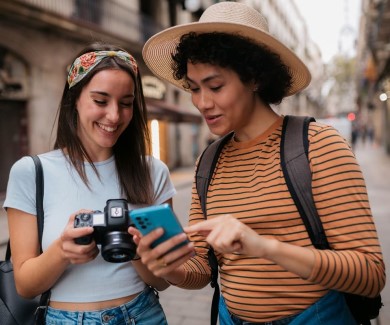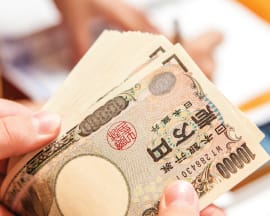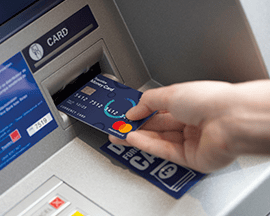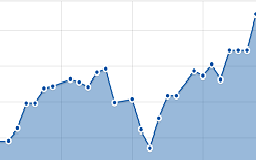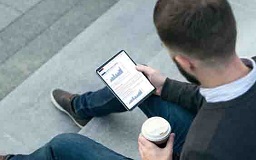Japan Travel Money Guide
Everything about Japan’s currency
Planning a trip to the land of the rising sun? Because Japan is a cash-based society, it’s important to make sure you’re fully equipped with everything you need to know about exchanging, buying and spending Japanese yen before you arrive.
We’ve rounded up the basics of using cash, travel cards, credit and debit cards, as well as currency exchange and average travel costs in our Japan travel money guide.
- Currency: Japanese Yen
- Currency code: JPY
- Central Bank: Bank of Japan
- Currency symbol: ¥, 円 (yen)
- Bank notes: ¥1000, ¥2000, ¥5000, ¥10,000
- Coins: ¥1, ¥5, ¥10, ¥50, ¥100, ¥500
The official currency used in Japan is called the yen, pronounced ‘en’ in Japanese. You may see it abbreviated as JPY, JP¥, ¥ or with the kanji symbol 円.
The word ‘yen’ derives from the Japanese translation for the word ‘round’. It’s the third most- traded currency on the foreign exchange market in the world after the US Dollar and the Euro.
Denominations of Yen
Yen may be confusing to first-timers or those used to using dollars, with banknotes coming in larger denominations and several different coins to pocket. It’s helpful to learn more about yen coins and notes as Japan is still largely a cash-based society.
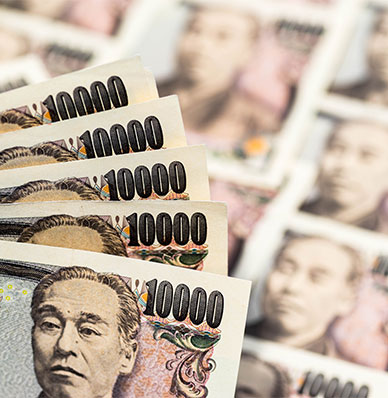
Japanese Notes
 JP¥ 1,000 - these are blue
JP¥ 1,000 - these are blue
 JP¥ 2,000 - these are green. These banknotes are not used as often as others.
JP¥ 2,000 - these are green. These banknotes are not used as often as others.
 JP¥ 5,000 - these are purple
JP¥ 5,000 - these are purple
 JP¥ 10,000 - these are brown
JP¥ 10,000 - these are brown
Notes are used for large purchases more than JP¥ 1,000, and can be used in food establishments, shopping districts, and other common areas where cash is the norm.
Travelex Tip: Need to get rid of any excess coins before leaving Japan? Try going to a shrine or temple and putting your leftover coins in an offerings box!
Japanese Coins
There are several types of coins used in Japan. Coins are mainly used for small purchases such as food items, and as donations when visiting local shrines and temples. Japanese coins can be found in denominations of 1, 5, 10, 50, 100, and 500.
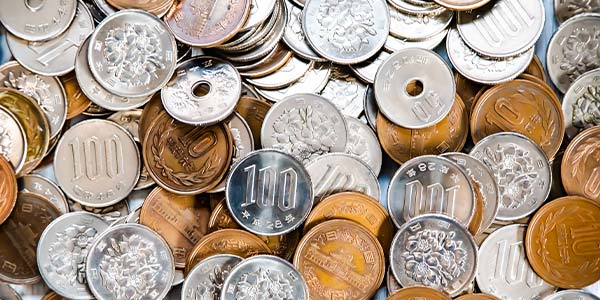
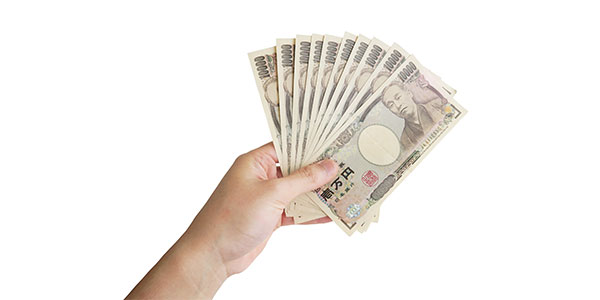
Because Japan is primarily a cash-based society, it’s important to make sure you’re fully equipped with everything you need to know about exchanging, buying and spending Japanese yen before you arrive. As there are also other payment methods, we’ve rounded up the basics of using travel money cards, credit and debit cards, as well as FX and local ATMs in Japan.If you are unsure how much travel money you need for your trip, you can try our travel budget calculator.
Japanese Coins and Notes
Cash in the form of coins and notes can be incredibly useful when travelling around Japan, especially in more rural areas. While major cities like Tokyo and Osaka accept foreign cards, most establishments around Japan (including accommodations, restaurants, and shopping centres) prefer cash.
Your may enjoy smoother travels around Japan if you have both cash and card on hand. Be sure to take out some cash (notes are priority first) at any international ATM. You can withdraw cash from Japanese ATMs with the Travelex Travel Money Card.
A Great Travel Card for Japan
Having a travel card is always handy for trips overseas, as it means you have access to money 24/7. If you are visiting major cities in Japan that largely accept card payments, such as Tokyo and Osaka, having exchange currency stored in a card will help you feel more secure during your travels.
Our best travel card in the market for Japan is the Travelex Money Card. An award-winning global currency card, the Travelex Travel Card can be used wherever Mastercard is accepted. Able to store yen and other foreign currencies, it is a useful card to bring with you during your Japan travels.
You can keep track of yen exchange rates with the Travelex currency converter or travel rate checker. Once you are happy with a rate, you can opt for a fixed exchange rate while storing and converting your Australian dollars to Japanese currency.
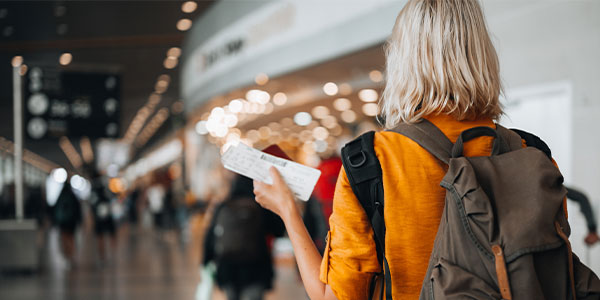
While the cost for a trip to Japan from Australia may vary depending on the activities you’re looking to partake in, there are a few staple costs to account for. Knowing the average costs of basics such as food and accommodation in Japan can help you better budget and prepare for your travel. It also means you can exchange your money to yen in advance.
How much does it cost to travel in Japan?
Below, we cover the average costs of food, transport, and entertainment activities in Japan.
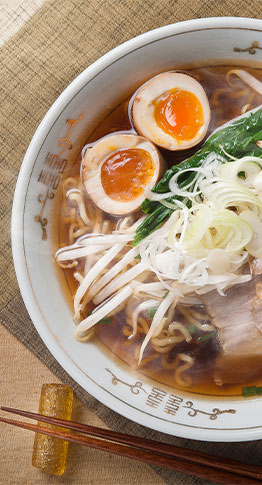
Japan food costs
The average cost of meals in Japan depends on the quality of the food you’re after. For example, the average cost of sushi in Japan is more than a fast food meal. A meal at an inexpensive restaurant averages around JP¥ 960, while expensive three-course meals can cost up to JP¥ 10,000.
Below are a few examples of food costs in Japan to keep in mind during your travels.
| Foods in Japan | Average Cost in Yen |
|---|---|
| Ramen | JP¥ 400 - 600 |
| Tempura | JP¥ 600 - 2,000 |
| Traditional Japanese breakfast | JP¥ 3,000 |
| Wagyu | JP¥ 3,000 |
| Sushi | JP¥ 2,500 |
Japan transport costs
There are several transport methods available when going from one place to another in Japan. Below, we cover the average cost of common Japanese transport methods, from the metro to a taxi ride.
| Transport in Japan | Average Cost in Yen |
|---|---|
| One-way Metro ticket | JP¥ 220 |
| Monthly Metro pass | JP¥ 9,180 |
| Taxi (per 1km) | JP¥ 403 |
| Car hire (per day) | JP¥ 10,000 |
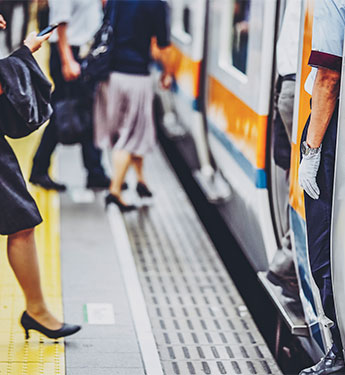
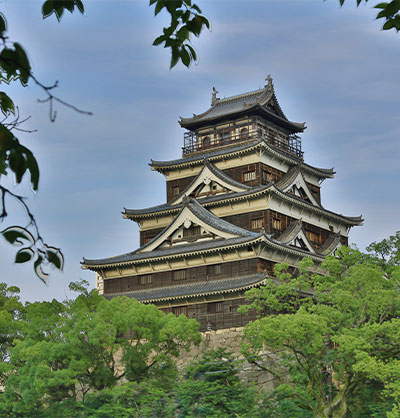
Japan entertainment costs
Japan is known for its wraith of tourist attractions and entertainment activities. Learn what the average cost of specific entertainment activities in Japan is below.
| Entertainment Activities in Japan | Average Cost in Yen |
|---|---|
| Museum admission | JP¥ 620 |
| Castle admission | JP¥ 630 |
| Kimono rental (per day) | JP¥ 4,000 |
| Onsen bath | JP¥ 600 |
| Sumo watching | JP¥ 10,500 |
Japan visa costs

Travellers from Australia do not need to pay for a visa when visiting Japan, provided they do not stay over 90 days. For stays over 90 days, travellers will need to pay for a visa as follows:
- Single-entry: $37
- Multiple entries: $74
- Transit: $9
Common Money Phrases in Japanese
Learning some simple phrases in Japanese can go a long way when visiting as a tourist. As well as showing a sign of respect to your host country, it can also make life easier when dealing with shopping and financial transactions.
Below are some simple shopping-related phrases you may want to remember on your travels in Japan.
Below are some common shopping and money-related you may want to remember during your travels in Japan.
| English | Japanese |
|---|---|
| Excuse me, how much is this? | Sumimasen, kore wa ikura desu ka |
| Excuse me, how much is this?That’s expensive! | Takai! |
| Can I pay with credit card? | Kurejitto kâdo de haratte mo ii desu ka |
| Can I have a receipt please? | Ryoushuusho wo kudasai |
| I don’t need the change | Otsuri wa irimasen |
| Can you give me a discount? | Mou sukoshi yasuku dekimasen ka? |
| Can I have the bill please? | Okanjo wo onegai shimasu |
| Cash | Genkin |
| Price | Genka |
| To pay | Harau |
| ¥1,000 | Sen en |
| 2,000 | Oku en |
| ¥5,000 | Go sen en |
| ¥10,000 | Ichi man en |

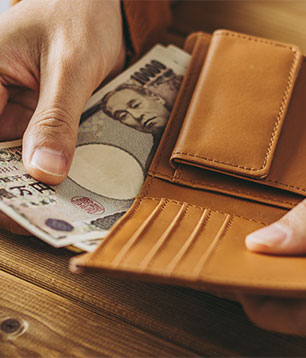
Monetary customs can change drastically from country to country. Keep these tips and cultural nuances in mind before going to Japan for a smoother time on your holiday.
Japan is a cash-based society. This means some experiences will be cash only. Ensuring you have some cash yen may help you to avoid any tricky situations!
Tipping is not generally accepted in Japan. In most instances, if you try leaving a tip you will have it returned! If you really do want to tip someone (like a tour guide), make sure you put the cash in an envelope before handing it over.
Make sure you have enough cash on you if you are visiting Japan during a public holiday, as some ATMs do close. If they do remain open, handling charges may increase.
In general, haggling or bargaining is not accepted in Japan. However, there may be some exceptions in markets or specialty stores. The most common form of haggling is asking for a discount if you offer to pay using cash.
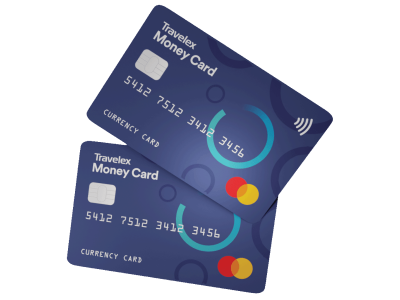
- Holds up to 10 available currencies
- Use your card globally wherever Mastercard is accepted
- Buy online and collect in-store or get delivered to your home
- A multi-award winning travel card | 5☆ Canstar rating for Best Value 2016 - 2020
and Mozo Best Prepaid Travel Card 2022 & 2023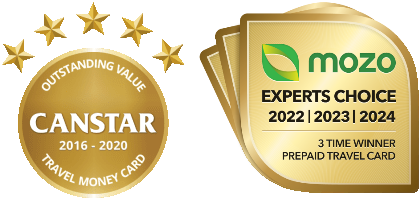
The currency used in Japan is the Japanese Yen (JPY). The Japanese Yen is the third most traded currency in the world, and is one of the four major currencies that make up the international foreign exchange market.
Other options include buses, taxis, hired cars, or even bicycles for those who want to explore the country on their own. If you plan to visit Japan and would like more travel tips, visit the Travelex travel guide for Japan.
Japan is a fantastic destination with its unique culture, beautiful scenery, vibrant cities and delicious cuisine. From ancient temples to modern skyscrapers, Japan has something for everyone. Find more places to visit in Japan with Travelex travel inspiration guides.
It is recommended that you exchange money before travelling to Japan so that you can get the best rate. You can track rates as they change alongside the Japanese economy with a currency converter.
You can also use your credit or debit card in many places, including ATMs, but be aware of any additional fees or charges associated with using them abroad. It can be helpful to bring a travel card with you, such as the Travelex Travel Money Card, to avoid international payment fees and convert Australian dollars when you need to.
You generally cannot use travellers cheques in Japan, with the exceptions of some larger hotels.
Suica is the main contactless payment form in Japan. Apple supports using your Suica via Apple Pay - but you’ll have to set it up on your phone before you arrive in Japan.
Not usually, which is why when travelling to Japan it’s best to ensure you have plenty of other payment options like the ones we’ve outlined above!
There are two types of ATMs in Japan: domestic and international. Customers should visit the International ATMs, found in Convenience Stores such as Seven Eleven, FamilyMart and Lawson. ATMs in banks are for domestic users only.
Travel to Japan FAQ
The currency used in Japan is the Japanese Yen (JPY). The Japanese Yen is the third most traded currency in the world, and is one of the four major currencies that make up the international foreign exchange market.
Other options include buses, taxis, hired cars, or even bicycles for those who want to explore the country on their own. If you plan to visit Japan and would like more travel tips, visit the Travelex travel guide for Japan.
Japan is a fantastic destination with its unique culture, beautiful scenery, vibrant cities and delicious cuisine. From ancient temples to modern skyscrapers, Japan has something for everyone. Find more places to visit in Japan with Travelex travel inspiration guides.
It is recommended that you exchange money before travelling to Japan so that you can get the best rate. You can track rates as they change alongside the Japanese economy with a currency converter.
You can also use your credit or debit card in many places, including ATMs, but be aware of any additional fees or charges associated with using them abroad. It can be helpful to bring a travel card with you, such as the Travelex Travel Money Card, to avoid international payment fees and convert Australian dollars when you need to.
You generally cannot use travellers cheques in Japan, with the exceptions of some larger hotels.
Suica is the main contactless payment form in Japan. Apple supports using your Suica via Apple Pay - but you’ll have to set it up on your phone before you arrive in Japan.
Not usually, which is why when travelling to Japan it’s best to ensure you have plenty of other payment options like the ones we’ve outlined above!
There are two types of ATMs in Japan: domestic and international. Customers should visit the International ATMs, found in Convenience Stores such as Seven Eleven, FamilyMart and Lawson. ATMs in banks are for domestic users only.

